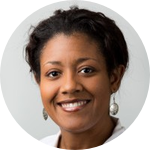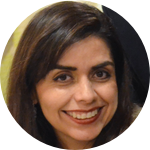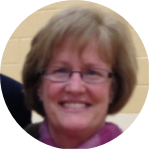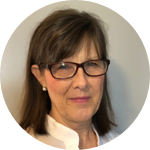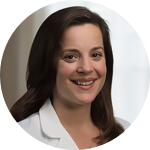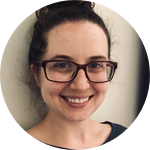Project Results
Users of the Billings Method expressed an overall positive experience when learning and using it for family planning and body awareness. Some challenges were identified that offer opportunities to improve how the Billings Method is taught and delivered. These findings can also enhance healthcare providers’ interactions with FABM users, including those of the Billings Method.
About This Project
Fertility awareness-based methods (FABM) are a group of family planning methods that teach women how to identify their fertile and infertile days in each menstrual cycle. They can use this information to time intercourse to achieve or delay a pregnancy. The Billings Ovulation Method® is a cervical mucus FABM and this project aims to understand the beliefs, attitudes, experiences and behaviors from users. By doing focus groups we are aiming to improve program development and delivery.
Ask the Scientists
Join The DiscussionWhat is the context of this research?
A recent systematic review, described that for women trying to avoid pregnancy, the Billings Ovulation Method® had a first-year probability of failure of 1-3% with perfect use and ranges from 10-34% with typical use (more references). Despite the scientific evidence supporting the use of this method to avoid pregnancy, some have expressed concern about the lack of information and many misconceptions about FABM. In addition, some studies have noted high drop-out rates due to loss of interest or method dissatisfaction. Though the Billings Ovulation Method® is used by a small proportion of reproductive-age women, use of FABM in the United States appears to be increasing in general. Therefore to understand the perspective of users is of utmost importance.
What is the significance of this project?
Users of FABM, including the Billings Ovulation Method®, learn how to identify the fertile and infertile phases of each menstrual cycle. This knowledge help users to choose days of intercourse to achieve or delay a pregnancy. Also, they have the advantage of not relying on chemical, mechanical or surgical procedures to prevent pregnancy, avoiding their associated side effects. In addition, these methods can be taught by trained members of the community. Learning about the experiences, attitudes, and behaviors of women who are current users of the Billings Ovulation Method® will help us improve program development and delivery. Furthermore, we expect that the findings of this study will generate new hypotheses to inform future studies about FABM use.
What are the goals of the project?
The purpose of this study is to understand the beliefs, attitudes, experiences, and behaviors from women who use the Billings Ovulation Method®. We want to answer the question: What are the experiences and insights of women who have completed training in the Billings Ovulation Method®? To do this, we will conduct three focus groups. We will invite women who have completed the training course and are current users to participate. This will be a convenience sample using a list of local users. We expect to have 6-10 women in each group. Each meeting will be conducted in person in a local public library and will last 90 min. Each session will be conducted under a dual-moderator fashion, audio-recorded and transcribed.
Budget
This is the minimum to cover 3 focus groups. If we raise more money, we could hold more focus groups that will improve the validity of our findings.
Endorsed by
 Project Timeline
Project Timeline
We had the appointment with a Qualitative Research Specialist at UNC TraCS on May 3rd for a consultation about our focus group study. See the milestones below to better understand our timeline.
May 03, 2019
Meeting with qualitative research team at UNC
Jul 08, 2019
Project Launched
Aug 08, 2019
Finish fundraising campaign
Aug 26, 2019
Finish recruiting participants
Nov 29, 2019
Finish conducting focus groups sessions
Meet the Team
Affiliates
Affiliates
Montserrat Ayala-Ramirez
I earned my Medical Degree in Guadalajara, Mexico and did my residency in Internal Medicine in Mexico City. After that, I was a postdoctoral fellow at the University of Texas MD Anderson Cancer Center. My current research projects are about environmental exposures, genetic polymorphisms and health outcomes including cancer. On December 2018, I finished a Masters in Public Health through the University of California at Berkeley. I first learned about the Billings Ovulation Method® when I was a medical student in my hometown. In 2013, I took the training course through the Billings Ovulation Method Association- USA and now I am a certified teacher and a board member. I am aware of the multiple misconceptions and lack of knowledge about the natural family planning methods including the Billings Ovulation Method®; therefore, I am conscious of the huge need for creating new research projects that will fill the gap. I hope that the results of this study will help generate updated evidence of the Billings Ovulation Method®.
Emily Kennedy, MSc, RHN
I am Registered Holistic Nutritionist and certified Billings Ovulation Method instructor currently serving patients as a Health Coach and Fertility Educator at the Reply Clinic in Cary, NC. After earning a Master's in Kinesiology from the University of Western Ontario and a diploma in Natural Nutrition from the Canadian School for Natural Nutrition, I amassed more than 10 years’ experience in nutrition research and private consulting driven by my passion to help individuals realize their health and wellness goals.
My research interest in fertility awareness stems from working with a high percentage of women with Polycystic Ovarian Syndrome in a weight management practice. Irregular cycles are related to overall metabolic health and there is much to learn about this relationship through tracking the patterns in a woman's biomarkers of ovulation. I am also is a personal user of fertility awareness for natural family planning and health monitoring purposes, and have training in several evidence-based methods including the Billings Ovulation Method, the Creighton Method, and Sensiplan. Most recently, I played a contributing role in a landmark study on the Typical Use Effectiveness of Fertility Awareness based Methods for Avoiding Pregnancy, published in August 2018 in the Journal of the American College of Obstetrics and Gynecology under the guidance of Dr. Rachel Urrutia.
Julie Kaiser
I am a Doctor of Physical Therapy. I learned to appreciate the importance of research while conducting original research projects as I studied at the university. Additionally, I have been a user, instructor, and teacher trainer of the Billings Ovulation Method® and have seen firsthand the numerous benefits of the method. Current research is needed to promote the understanding and practice of this scientifically-based FABM. This focus group study will provide the foundation to further review the BOM® which will ultimately empower women to understand their fertility.
Martha Winn, RN
I am a Registered Nurse with a clinical background in OB/GYN. Teaching the Billings Ovulation Method® since 2004 as a Certified Teacher, Trainer/Supervisor
of new Trainees, and the present Education Chair of BOMA-USA, I help in
ensuring the authentic method is taught throughout the US. The mission of BOMA-USA is to provide the simplest and most personalized care in fertility education with a legacy of evidence-based effectiveness. The study will help validate current teaching methods to individuals/couples. BOMA-USA has a goal of increasing the knowledge of the Billings Ovulation Method® among medical professionals wishing to incorporate the education of a reliable Fertility Awareness Based Method (FABM). The study will provide groundwork for statistical analysis of the method in future projects.
Rachel Urrutia
I am an assistant professor of obstetrics and gynecology at the University of North Carolina at Chapel Hill. I am board certified in obstetrics and gynecology as well as preventive medicine with additional training in epidemiology and clinical trials. I am experienced in qualitative research methods. One of my research focuses has been on fertility awareness-based methods. I recently published a systematic review of the effectiveness of various methods. I see patients at Reply OB/Gyn and Fertility in Cary, NC and am a certified instructor of the Sensiplan fertility awareness method.
MaryBeth Grewe, MPH
I obtained my Masters of Public Health in Health Behavior at UNC Chapel Hill. I currently serve as an Engagement and Qualitative Research Specialist at the North Carolina Translational and Clinical Sciences (NC TraCS) Institute at UNC Chapel Hill. In this role, I support researchers and community partners in conducting qualitative and engaged research and evaluation projects.
Additional Information
After the invitation, a letter explaining the study and a written consent will be mailed to each participant. The study will be reviewed by the IRB (IRB #243970). At the end of the focus group session, each participant will receive a $50 gift card as an incentive and child care will be provided if needed. Audios will be kept in a secured lock file and destroyed after transcription.
Project Backers
- 51Backers
- 103%Funded
- $3,756Total Donations
- $73.65Average Donation
